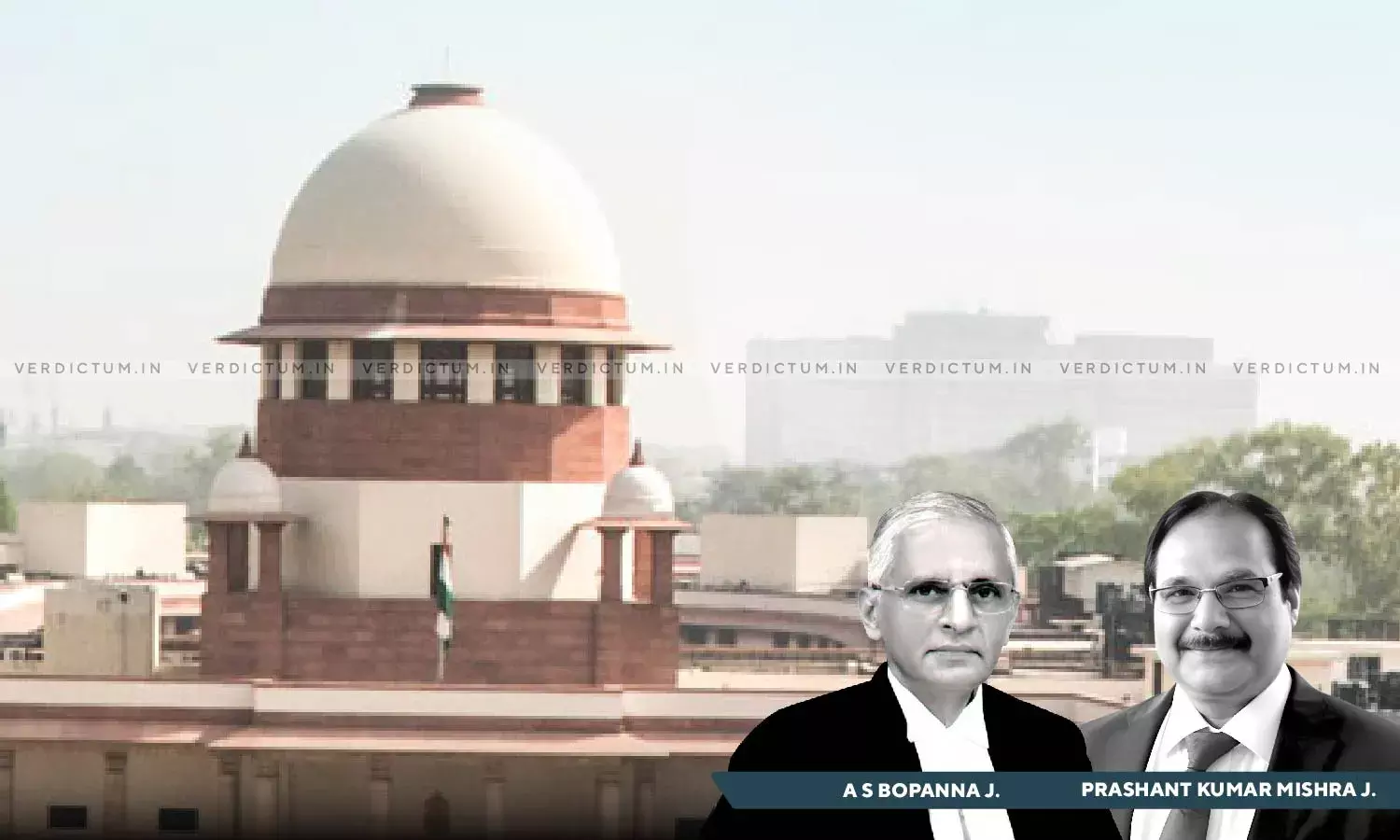Medical Negligence: Difficult To Foresee Cardiac Problem Only Because Patient Suffered Pain In Neck Region- SC While Dismissing Widow's Appeal

The Supreme Court in a medical negligence case has dismissed an appeal filed by a widow against the Hospital on account that it is difficult to foresee a possible cardiac problem only because the patient suffered pain in the neck region.
A civil appeal was preferred against the order passed by the National Consumer Disputes Redressal Commission (NCDRC) whereby the complaint filed by the appellant under Section 2(c)(iii) of the Consumer Protection Act, 1986 was rejected.
The two-judge Bench of Justice A.S. Bopanna and Justice Prashant Kumar Mishra held, “The case in hand stands on a better footing, in as much as there was no mistake in diagnosis or a negligent diagnosis by Respondent no. 2. In the absence of the patient having any history of diabetes, hypertension, or cardiac problem, it is difficult to foresee a possible cardiac problem only because the patient had suffered pain in the neck region.”
Senior Advocate Nikhil Nayyar appeared for the appellant while Senior Advocate Meenakshi Arora and Advocate Lalit Bhasin appeared for the respondents.
Facts of the Case -
The appellant/complainant was the wife of the deceased patient who was 37 years old when he died in the year 1998 in the respondent hospital while undergoing follow up care and treatment after a major neurosurgery in the care of the respondents. The deceased was suffering from Chiari Malformations (Type II) with Hydrocephalous and he consulted the Senior Consultant, Department of Neurosurgery of the respondent hospital, who advised him to get admitted to the said hospital. As per the advice, the deceased got himself admitted and after performing pre-operative medical examinations, the said Doctor conducted operation of the deceased. The deceased was thereafter shifted to private room but the doctors visiting the deceased were informed about pain in the neck region, which seemed to have transferred downward lower than the region where pain used to occur prior to operation.
Hence, the deceased was given pain reliever intravenously, but the pain increased along with severe sweat spells. After sometime, the deceased started suffering from severe unbearable pain and the appellant called the Doctor at his residential phone but he was not available. Thereafter, another pain killer was intravenously given but the deceased suffered heart attack and was declared brain dead. He was kept on life support till his death and the grievance of the appellant was that the deceased was not attended to by any doctor from neurosurgery team who had operated the deceased after he was shifted into the private room and that after such major surgery, instead of shifting to a private room, the deceased should have been shifted to the Intensive Care Unit (ICU).
The Supreme Court in view of the facts and circumstances of the case observed, “In so far as the applicability of principles of Res Ipsa Locutor, in the fact and circumstances of the case, it is to bear in mind that the principles get attracted where circumstances strongly suggest partaking in negligent behaviour by the person against whom an accusation of negligence is made. For applying the principles of Res Ipsa Locutor, it is necessary that a ‘Res’ is present to establish the allegation of negligence. Strong incriminating circumstantial or documentary evidence is required for application of the doctrine.”
The crucial issue before the court was whether the respondents committed negligence in not providing proper post-operative medical care to the patient and whether the Commission committed any illegality while dismissing the complaint filed by the appellant.
The Court relied upon the judgment in the case of Malay Kumar Ganguly v. Dr. Sukumar Mukherjee and Ors. (2009) 9 SCC 221 in which it was held that, “Charge of professional negligence on a medical person is a serious one as it affects his professional status and reputation and as such the burden of proof would be more onerous. A doctor cannot be held negligent only because something has gone wrong. He also cannot be held liable for mischance or misadventure or for an error of judgment in making a choice when two options are available. The mistake in diagnosis is not necessarily a negligent diagnosis.”
The Court, therefore, said that the appellant failed to establish negligence on the part of the respondents in taking post operative care and the findings in this regard recorded by the Commission does not suffer from any illegality or perversity.
Accordingly, the Apex Court dismissed the appeal.
Cause Title- Kalyani Rajan v. Indraprastha Apollo Hospital & Ors. (Neutral Citation: 2023 INSC 921)


